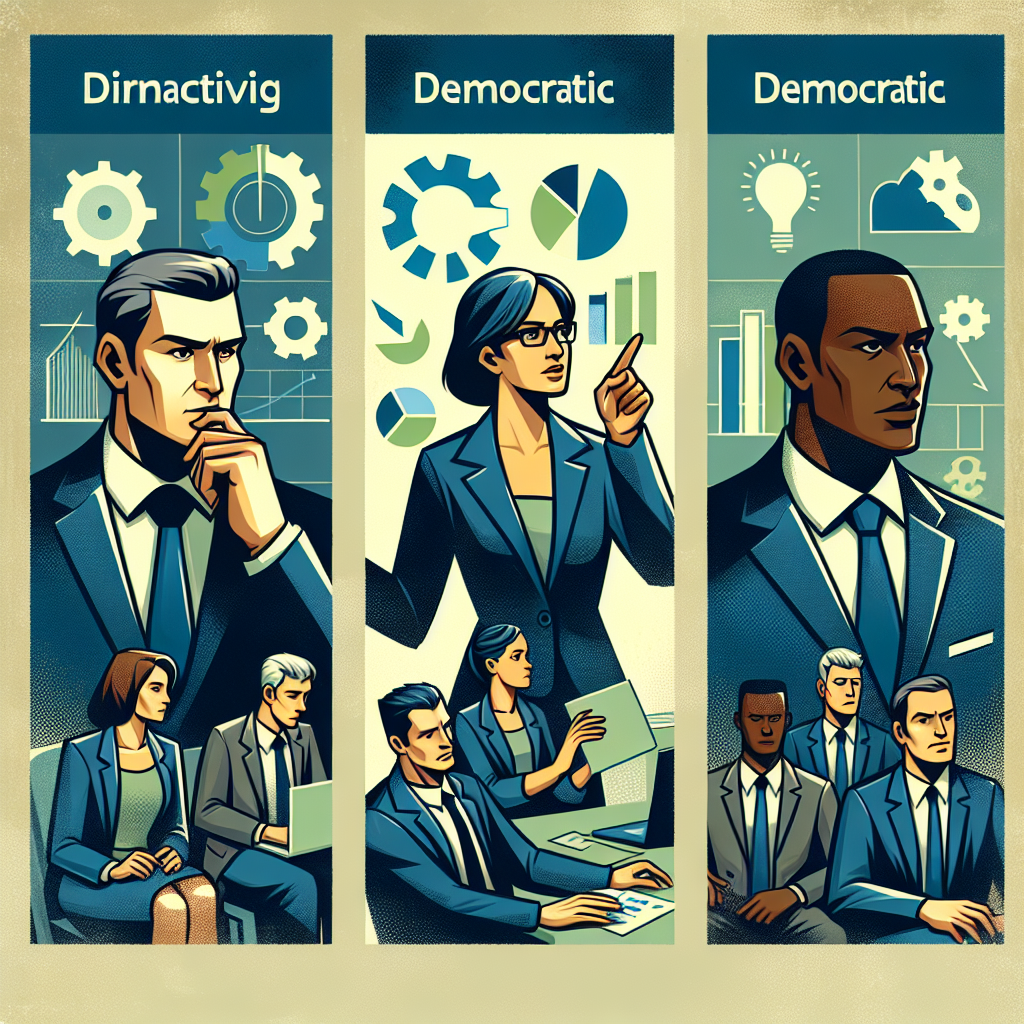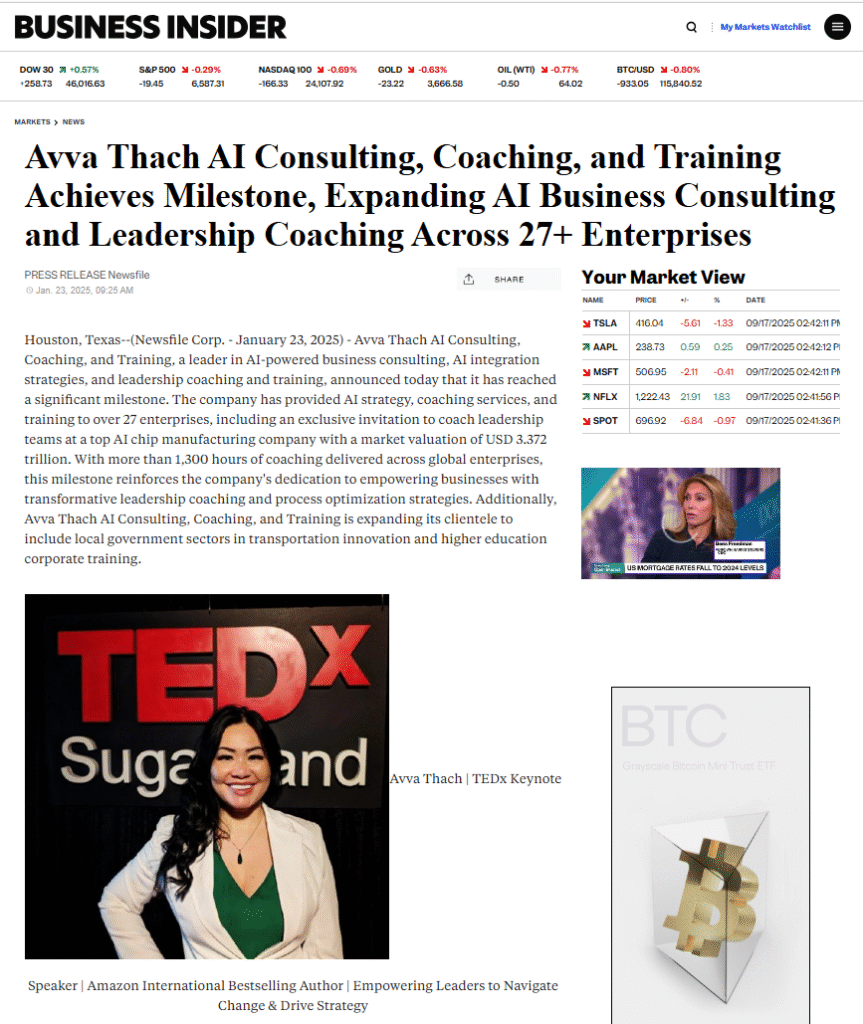Modern Leadership: Training for Tomorrow’s Business Challenges
Introduction
Welcome to the exciting world of leadership training and development, where the future of business is being shaped one workshop at a time! In a landscape that’s evolving faster than a cat meme going viral, organizations are scrambling to equip their leaders with the skills necessary to navigate tomorrow’s challenges. Think of it as upgrading your smartphone: you wouldn’t want to be stuck with last year’s model when the latest features can help you take better selfies (or, in this case, lead more effectively).
Today’s leaders need more than just traditional management techniques; they require a robust toolkit filled with advanced leadership skills, innovative strategies, and an understanding of emotional intelligence. With the rise of remote work and digital transformation, corporate leadership development has never been more critical. This is not just about filling positions; it’s about cultivating a new generation of leaders who can inspire teams, drive change, and foster an inclusive culture.
In this blog post, we’ll explore the importance of comprehensive leadership training programs that go beyond the basics. We’ll delve into effective leadership strategies that include everything from executive coaching to dynamic team-building exercises. So grab your favorite beverage, sit back, and let’s dive into how we can build strong leaders for the future!

The Importance of Leadership Training and Development
In the whirlwind of modern business, where change is the only constant, leadership training and development has emerged as a non-negotiable asset for organizations aiming to thrive. Think of it as a gym membership for your leadership team without regular workouts, those leadership muscles can get flabby.
As we navigate through current business challenges like digital transformation and remote work dynamics, the need for effective leadership has never been more pronounced. According to a recent study by PwC, 75% of companies believe that effective training and coaching are essential for successful digital transformation. This highlights that investing in leadership skills development is not just beneficial; it’s crucial.
Key Takeaway: Organizations that prioritize leadership training are more likely to see improved employee engagement, productivity, and overall success.
The Ripple Effect of Leadership on Success
Effective leaders can transform an average team into a high-performing powerhouse. They do this by fostering an environment where innovation thrives and employees feel valued. For instance, companies with strong leadership development programs report a staggering 30% increase in employee retention rates. When employees see their leaders growing through tailored programs like executive leadership training or customized leadership programs, they’re more likely to stick around.
Trends in Leadership Training and Development
The landscape of leadership training is evolving faster than you can say “team leadership skills.” Here are some trends shaping the future:
- Virtual Learning: With the rise of remote work, online leadership courses have become increasingly popular. This allows leaders to develop their skills from anywhere in the world.
- Emphasis on Emotional Intelligence: Today’s leaders need to be emotionally intelligent to navigate complex team dynamics effectively. Programs focusing on emotional intelligence in leadership development are gaining traction.
- Cross-Cultural Competencies: As businesses expand globally, understanding cross-cultural differences has become vital. Leadership workshops now often include modules on developing cross-cultural leadership competencies.
Avoiding Common Misconceptions
A common misconception is that once leaders receive initial training, they’re set for life. Wrong! Just like technology evolves, so must our leaders. Continuous professional development for leaders through regular workshops and seminars ensures they stay relevant in an ever-changing landscape.
If organizations want to cultivate strong leaders who can facilitate change effectively, investing in high-impact leadership training is essential. It’s not just about filling seats but about building strong foundations for future success.
The Road Ahead: Building Future Leaders
The future belongs to those who prepare today. By embracing innovative leadership techniques such as mentoring and coaching for leaders or incorporating dynamic team-building exercises into their training programs, organizations can ensure they are developing future-ready leaders equipped with strategic leadership skills necessary for tomorrow’s challenges.
93% of companies are currently undergoing digital transformation (International Data Corporation).
This statistic underscores the urgency for organizations to invest in comprehensive organizational leadership training that aligns with these transformative efforts.
Next Steps
If you haven’t already started investing in your leaders’ growth through tailored programs or workshops focused on developing advanced leadership skills, now is the time! Remember, strong leaders don’t just happen; they’re made through intentional effort and ongoing support.
Key Leadership Skills for the Future
As we gear up for a future that promises to be as unpredictable as a cat on a hot tin roof, honing the right leadership skills becomes paramount. Here are some of the key skills that will define successful leaders in the coming years:
- Adaptive Leadership Skills: The ability to pivot and adjust strategies in response to changing circumstances is no longer optional. Leaders must be like chameleons, adapting their approach based on the environment and team dynamics.
- Emotional Intelligence in Leadership Development: Understanding and managing one’s emotions, as well as empathizing with others, is critical. Leaders with high emotional intelligence can navigate interpersonal relationships judiciously and empathetically, fostering a positive workplace culture.
- Influential Communication in Leadership: In an age where messages can get lost in translation faster than you can say “email overload,” being able to communicate effectively is vital. Leaders must master the art of clear and persuasive communication, ensuring their vision resonates across diverse teams.
Did You Know? According to recent studies, companies with strong leadership development programs see 24% higher profits than those without. Investing in leadership training and development isn’t just good for morale it’s good for business!
As we look at these skills, it’s important to note that they don’t exist in isolation. They are interconnected and often require a blend of strategies to cultivate effectively.
Building Strong Leaders through Customized Programs
The future demands not just leaders but strong leaders who can inspire teams and drive innovation. Customized leadership programs focused on enhancing these skills are essential. Here’s how:
- Leadership Coaching: Personalized coaching can help emerging leaders identify their strengths and weaknesses, paving the way for focused growth.
- Leadership Workshops: Interactive workshops provide hands-on experience with new techniques, creating opportunities for real-time feedback.
- Management Training Programs: Comprehensive training that incorporates both soft skills and hard data prepares leaders for multifaceted challenges.

The key takeaway? Investing in leadership training and development today will cultivate tomorrow’s visionary leaders capable of navigating complex business landscapes with confidence.
Types of Leadership Training Programs
When it comes to leadership training and development, there’s no shortage of options. Different programs cater to various needs and learning styles, ensuring that every aspiring leader can find their perfect fit. Let’s explore some of the most popular types of leadership training programs that are shaping the leaders of tomorrow.
1. Executive Leadership Training
This type of training is tailored for senior leaders looking to refine their strategic vision and enhance their decision-making capabilities. It often includes:
- Advanced leadership skills: Focused on developing high-impact strategies for organizational growth.
- Business leadership coaching: Personalized coaching sessions aimed at cultivating executive presence.
- Networking opportunities: Connecting with other executives to share insights and experiences.
2. Leadership Workshops and Seminars
If you prefer a more interactive approach, workshops and seminars are your best bet! These programs typically feature:
- Dynamic team building exercises: Engaging activities designed to foster collaboration and trust among participants.
- Innovative leadership techniques: Practical strategies that can be immediately applied in the workplace.
- Cross-cultural competencies: Training that prepares leaders for managing diverse teams effectively.
3. Online Leadership Courses and Programs
The digital age has made it easier than ever to access quality education from anywhere in the world. Online courses offer flexibility while covering essential topics such as:
- Organizational leadership training: Comprehensive modules that focus on leading teams in complex environments.
- Employee leadership training: Courses designed for all levels, from aspiring leaders to seasoned managers looking to refresh their skills.
- Leadership courses online: A wide array of topics available at your fingertips, allowing for personalized learning paths.
Key Takeaway: Investing in a variety of leadership training programs not only builds strong leaders but also enhances overall organizational performance. Choose a mix that aligns with your company’s goals!
Innovative Techniques for Developing Future Leaders
In the fast-paced world of business, traditional leadership training methods just don’t cut it anymore. To truly equip future leaders, organizations must embrace innovative techniques that resonate with the challenges of tomorrow. Let’s dive into some of these groundbreaking approaches that can elevate leadership training and development to new heights!
-
Dynamic Team-Building Exercises
Forget the boring trust falls! Modern leaders thrive on collaboration and adaptability, which is why dynamic team-building exercises are essential. These activities not only foster team spirit but also enhance team leadership skills. For instance, consider a simulation where teams must navigate a virtual landscape filled with challenges that require strategic thinking and quick decision-making. This immersive experience hones critical thinking and promotes camaraderie.
-
Cultivating Executive Presence
Executive presence isn’t just about wearing a sharp suit; it’s about embodying confidence and approachability. Through tailored coaching and mentoring sessions, emerging leaders can develop this crucial trait. Leadership coaching programs can include role-playing scenarios where participants practice influential communication in leadership. This not only boosts their confidence but also prepares them for high-stakes interactions.
-
Practical Applications of Leadership Skills
The best way to learn is by doing! Incorporating real-world scenarios into leadership workshops allows participants to apply what they’ve learned in a safe environment. For example, case studies that mirror actual business challenges can be used to facilitate discussions on effective leadership strategies. Participants can brainstorm solutions, allowing them to see how their decisions impact outcomes an invaluable lesson in practical leadership applications.
-
Leveraging Technology for Learning
The digital age has opened up a treasure trove of resources for leadership training and development. Virtual team management strategies can be integrated into online courses, enabling leaders to manage diverse teams across geographical boundaries effectively. Utilizing platforms for interactive learning not only makes training accessible but also encourages participation through gamification elements who doesn’t love earning badges for mastering new skills?
-
Cross-Cultural Leadership Competencies
As businesses become more globalized, developing cross-cultural leadership competencies is vital. Training programs should include modules on cultural awareness and sensitivity, helping leaders navigate complex international landscapes. This not only enhances organizational effectiveness but also fosters an inclusive workplace culture.
Takeaway: By implementing these innovative techniques in your corporate leadership development programs, you will not only build strong leaders but also ensure your organization remains agile in the face of change.

The Role of Emotional Intelligence in Leadership Development
In the realm of leadership training and development, emotional intelligence (EI) is the secret sauce that transforms good leaders into great ones. Think of it as the GPS for navigating the often turbulent waters of team dynamics and organizational challenges. Leaders with high EI can recognize their own emotions and those of others, allowing them to respond effectively rather than react impulsively.
Understanding Emotional Intelligence and Its Significance in Leadership
Emotional intelligence comprises five key components: self-awareness, self-regulation, motivation, empathy, and social skills. Each plays a pivotal role in leadership:
- Self-awareness: Leaders who understand their emotions can manage them better, leading to more thoughtful decision-making.
- Self-regulation: This allows leaders to remain calm under pressure, fostering a stable work environment.
- Motivation: Emotionally intelligent leaders are usually more driven and inspire their teams to achieve goals.
- Empathy: Understanding team members’ feelings helps build trust and rapport.
- Social Skills: Effective communication and relationship management are essential for successful leadership.
Strategies to Enhance Emotional Intelligence Among Leaders
The journey toward enhancing emotional intelligence is ongoing. Here are some practical strategies that organizations can implement through their leadership coaching programs:
- Leadership Workshops: Conduct interactive sessions focusing on EI competencies, where leaders can practice skills in real-time scenarios.
- Mentoring Programs: Pairing emerging leaders with mentors can provide valuable feedback on emotional responses during challenging situations.
- Feedback Mechanisms: Implement 360-degree feedback systems that allow leaders to gain insights into how their emotional behaviors affect others.
- Cognitive Behavioral Techniques: Training in these techniques can help leaders identify emotional triggers and develop healthier responses.
The Impact of Emotional Intelligence on Team Dynamics and Performance
A leader’s emotional intelligence has a ripple effect throughout the organization. High EI contributes significantly to team cohesion, employee satisfaction, and overall performance. Research shows that teams led by emotionally intelligent leaders exhibit:
- Improved Collaboration: Teams feel more comfortable sharing ideas when they trust their leader’s understanding and empathy.
- Increased Engagement: Employees are more likely to be engaged when they feel understood and valued by their leader.
- Enhanced Conflict Resolution: Emotionally intelligent leaders can navigate conflicts more effectively, resulting in quicker resolutions without lingering resentment.
The integration of emotional intelligence within your corporate leadership development strategy isn’t just beneficial; it’s essential for cultivating strong leaders who can adapt to changing environments. By prioritizing EI in your training programs whether through executive leadership training or online leadership courses you’re not just enhancing individual capabilities but also paving the way for a resilient organizational culture ready for tomorrow’s challenges.
Cultivating a Culture of Continuous Learning and Development
In the ever-evolving landscape of business, cultivating a culture of continuous learning and development is not just a nice-to-have it’s a necessity. Organizations that prioritize leadership training and development foster an environment where innovation thrives, and employees feel empowered to grow. So how do we create this magical atmosphere?
1. Talent Management and Succession Planning
First things first, let’s talk about talent management. It’s like gardening if you want your plants to flourish, you need to nurture them. By implementing effective succession planning, organizations can identify potential leaders early on and provide them with tailored leadership training programs. This proactive approach ensures that when leadership roles open up, there are well-prepared candidates ready to step in.
2. The Importance of Feedback Loops
Next up, feedback loops! These are the lifeblood of any effective leadership development program. Regular feedback allows leaders to understand their strengths and areas for improvement. Think of it as a GPS for your leadership journey without it, you might find yourself lost in the wilderness.
Key Takeaway: Establish regular check-ins where employees can give and receive constructive feedback. This not only enhances their skills but also builds trust within teams.
3. Fostering Growth and Innovation
The final piece of the puzzle is creating an environment that fosters growth and innovation among leaders. This means encouraging risk-taking without the fear of failure a bit like giving your team a safety net while they practice tightrope walking! When leaders feel safe to experiment with innovative leadership techniques, they’re more likely to develop advanced leadership skills that can drive the organization forward.
4. Innovative Leadership Workshops
Consider implementing dynamic workshops focused on enhancing team leadership skills through experiential learning activities like role-playing or case studies based on real-world challenges. This hands-on approach not only solidifies learning but also builds camaraderie among team members.

The future belongs to those who learn more skills and combine them in creative ways.
In conclusion, cultivating a culture of continuous learning is about more than just offering training sessions; it’s about embedding these principles into the very fabric of your organization. By focusing on talent management, establishing effective feedback loops, fostering an innovative environment, and utilizing engaging workshops, organizations can build strong leaders who are ready to tackle tomorrow’s challenges head-on.
Your Next Step: Start by assessing your current leadership training programs what’s working? What could be improved? Then take action! The future is bright for those who invest in their leaders today.
Conclusion: Preparing Leaders for Tomorrow’s Challenges
As we look toward the future, it’s clear that leadership training and development will be the cornerstone of successful organizations. The challenges ahead are not just about adapting to new technologies but also about fostering a culture that embraces change, innovation, and resilience.
To truly prepare leaders for tomorrow’s challenges, organizations must invest in comprehensive training programs that focus on:
- Leadership skills development: Building a robust foundation in both hard and soft skills is essential. This includes everything from strategic leadership skills to emotional intelligence in leadership development.
- Customized leadership programs: Tailoring training to fit the unique needs of your organization can significantly enhance the effectiveness of your leadership coaching initiatives.
- Innovative leadership techniques: Embracing modern methodologies such as agile practices and transformational leadership development will help leaders navigate complex environments.
Moreover, the role of emotional intelligence cannot be overstated. Leaders equipped with high emotional intelligence are better at facilitating change through leadership training, fostering strong team dynamics, and enhancing overall organizational performance. In fact, studies show that leaders with strong emotional intelligence can improve team engagement by up to 60%!
Key Takeaway: Organizations that prioritize effective leadership strategies through ongoing training will not only develop future leaders but also cultivate an environment where innovation thrives and teams feel empowered.
The future is bright for those who are willing to invest in their leaders today. By implementing high-impact leadership training programs such as executive leadership training and management training programs, businesses can ensure they are ready to tackle whatever challenges lie ahead.
In conclusion, let’s embrace the responsibility of developing strong leaders who can steer their teams through uncertainty with confidence and clarity. It’s time to take action because tomorrow’s business landscape won’t wait!






















Leave a Reply